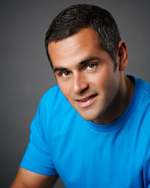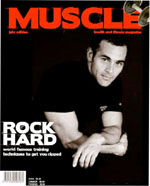

It’s hard to find good quality trainers. You look at them on paper, and they meet the qualifications, but those qualifications have to come to life. The practical application is the challenge.
I consider myself a fitness coach but market myself as a personal trainer for search engine optimization reasons. I prefer not to identify myself as a personal trainer. It’s what I do, of course. In my 30 years of training I have logged tens of thousands in training sessions in commercial facilities in New York and San Francisco.
Yet as a co-worker of mine has said on numerous occasions,
“we are coaches at this level; you train a dog, you can train a dolphin, but we coach.”
I like that attitude. It creates rank, file, and order in an industry that lacks it.
Now, there are hundreds of “trainers” in the Bay Area that are capable of safely executing an exercise program that leads to some sort of desired result for the paying client.
Yet often these individuals don’t problem solve well, are easily distracted by tricks and new equipment, and aren’t capable of providing the 360 degree support that many clients often require. They’re not coaches.
For exercise physiology or physical therapy you need to be accepted into advanced education programs and perform years of studying, research, and clinical application before you can earn the title.
Becoming a professional fitness coach, however, is a bit more abstract. Sure you can become a Certified Strength and Conditioning Specialist through NSCA or NASM or a Certified Functional Strength Coach Those are all top training certifications.
But those are just letters after your name and not a representation of your ability level.
I have had the privilege of working in many commercial facilities. I’ve often met new trainers who were focused and eager to make an impression. New certification, new uniform, and tablet (clipboard) in hand they take their new client to the floor. They did everything they were *supposed* to do:
Add in the motivational phrases, and “this is your moment to change your life” speeches and you found yourself a trainer.
I love the enthusiasm. I remember being that guy myself. I remember always explaining energy systems because I felt people needed to understand why it was important to lift slow and heavy, sprint hard and fast, and everything in between.
I also remember having those blank stares being sent back at me, and the feeling of confusion when they weren’t as excited as I was.
Then one day I learned that I can accomplish much more by silently observing my client while they move, speaking only when necessary and appropriate.
I focus less on filling the space with numbers, words, and random cues. Instead, I coach external applications such as “push through your heel” or “crunch your rib cage into your pelvis” when my client needed reminding.
I’ve gotten to a point now where I quickly rehash the major cues within the ten seconds before they perform their next set, if necessary.
I’m not that guy who counts every rep out loud, or you can count on to motivate you. I simply let you work and provide direction. If I’ve done my job to teach you the exercise, you won’t need my voice booming into their skull.
I save the motivation for the days you might actually need it. I keep the science to myself unless you ask for my reasoning. I don’t congratulate you on every repetition, rather saving an emphatic response for when you actually do set a personal record, or demonstrate excellence and all out effort.
It’s now about putting value in what you say, and not how much I say.
In addition, as an avid athlete and competitor I have mastered movement patterns to adequately coach exercises. Through the process of trial and error over the years I have prevented people from losing motivation, and wasting time with exercises that don’t work. I have incorporated 30 years of my experience and knowledge of nutrition, exercise, and sports-specific training towards my own goals and achievements. I’ve made the mistakes so you don’t have to.
My program delivers a fitness that is, by design, broad, general, and inclusive. My specialty is not specializing. Healthy living requires that we push, pull, run, throw, climb, lift, jump, and decelerate movement effectively and safely regardless of whether or not you play athletics. Athletics is a specialized pursuit. My goal is to support the specialist, but reward the generalist.
I use a fitness approach designed for universal scalability making it the perfect application for any committed individual regardless of experience. I’ve used my same routines for elite athletes to grandparents. I scale load and intensity; I don’t change programs unless I am approached by a client with orthopedic, injury, and rehabilitation concerns. Otherwise, the needs of our grandparents and elite athletes differ by degree not kind.
The basic premise is that it does not matter what your goals are or what you need, we will work hard as a team to make sure you reach those goals now rather than later. I realize that getting results is the only thing that matters.
In addition to my 30 years of practical training experience I have achieved multiple certifications and specializations. Each of the certification groups (the National Academy of Sports Medicine (N.A.S.M), and National Strength and Conditioning Association (N.S.C.A), and Crossfit among others) offer courses and testing in subjects including anatomy, exercise physiology, kinesiology, biomechanics, range of motion, structural integrity, fitness screening and testing, training principles and techniques, understanding equipment, sport nutrition, sports injury, physician interfacing, sport psychology and motivation, safety and injury prevention. To be certified by these organizations requires rigorous study, participation in courses, hands-on training trials, and passing difficult examinations.
When you hire me you’re not paying for my time, you’re paying for results.